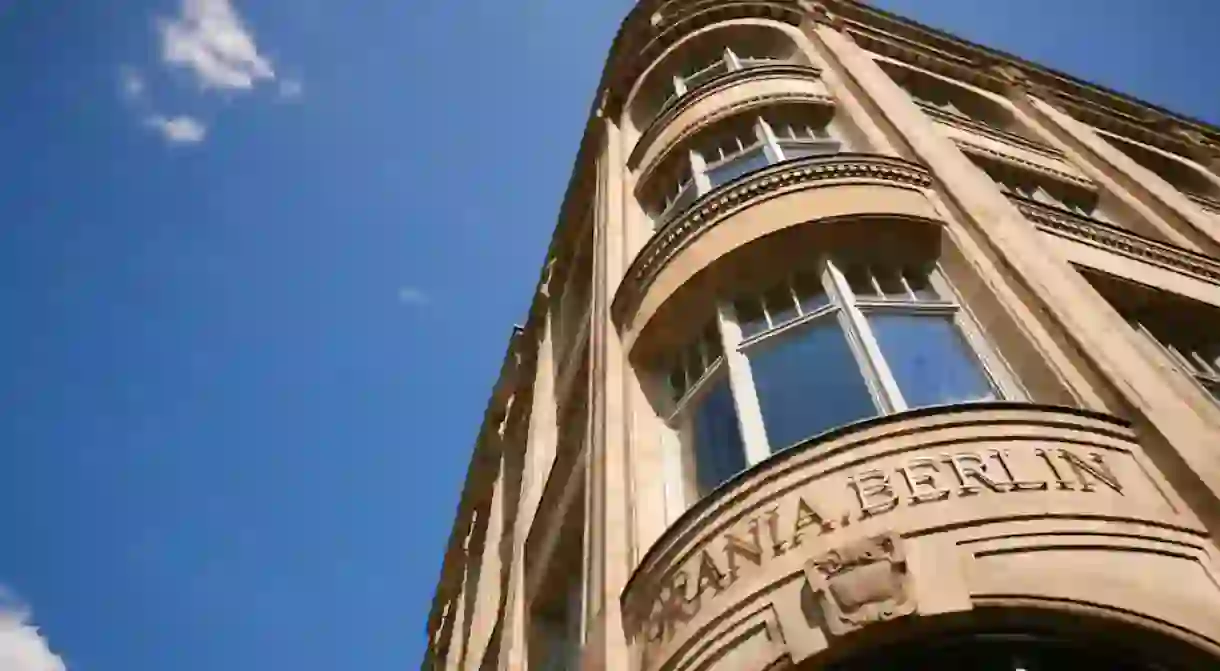1920s Jazz is Being Revived at Berlin's Hottest New Cultural Hub

In the heart of Kreuzberg, the revival of a 1913 cabaret cafe, is ringing in a new era of salon-style jazz. After over a century the Weimar-era cafe at Oranienplatz has come to life again, reconstructed to house a boutique hotel, stunning restaurant and cultural hub. Step inside Orania.Berlin and discover a modern take on the opulence and artistic flair of 1920s Germany.

Jazz and modernism in Weimar Germany
Defeated, yet eager to move forward from the crippling loss of World War I, Germany embraced the modernism that was sweeping across the globe in the roaring 20s. In Europe, and particularly in Germany, jazz imported from America, reflected the vicissitude of the time and for many, this new musical form encapsulated the essence of a modernist era. Decadence and debauchery quickly found their way into the jazz and cabaret clubs of Berlin, and they continued to act as salons and meeting spots for thinkers of the time. In this sense, jazz helped encourage a dialogue towards greater equality and democracy in Germany. However, the rise of Nazism in 1933 saw the exodus and persecution of Jewish musicians, many of whom were skilled jazz performers. Furthermore, propaganda campaigns against jazz and the modernist thought it propelled, saw it banned from the radio. In Germany, it wasn’t until the Third Reich was broken down, that a new chapter of German jazz could begin.

Orania.Berlin breathes new life into historic building
Built as an office building in 1912 by merchant and city councillor, Leopold Jacobi, the Orania building featured a popular cafe, known as Oranienpalast Cafe, on its ground floor. Here, guests were treated to outstanding concerts and cabaret shows and the space acted as a cultural hub in Berlin, until the mid-1920s when it was closed. The building was then sold to C&A, who converted it into a clothing store. The building was spared during World War II, but the post-war years saw the now iconic building changing hands several times. Until, in 1995, it was converted into a club called ‘Trash’ and registered as a national monument. In 2008 Dietrich von Boetticher acquired the building and several years later commissioned a project to reconstruct it as a boutique hotel. By 2017, Orania.Berlin was complete, bringing the vibrant energy of the Oranienpalast Cafe back to this corner of Kreuzberg.

A 21st-century salon
Reviving this identity, the 41-room Orania.Berlin has curated an exciting programme of jazz, classical and electronic music concerts, performed by amazing artists living in Berlin. The hotel also includes its own salon, which features readings and film screenings, showcasing homegrown and international talent. The events are held through the month and hosted in both the property’s Orania.Bar, which houses a concert stage and Steinway piano, and the Orania.Salon overlooking the Kreuzberg skyline. Tickets to the rich cultural programs can be purchased online and are free for hotel guests. Orania.Berlin is the city’s latest boutique hotel and is ushering in a new age of jazz in Berlin.














